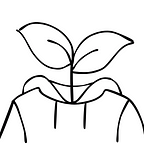If you want to change, change your environment
The inspirational case of the Vietnam soldiers
Back in the 1970s, in the United States, many feared the return of soldiers from Vietnam. Not only because of the scars the war had left on them, there was a much more serious problem.
Drug addiction.
In Vietnam, heroin was just another part of many soldiers’ daily lives, a quick way out of the horror they experienced. Nearly half of the soldiers had used drugs and 20% were addicted to heroin (Robins et al., 2010). When the conflict ended, the fear was obvious: What would those thousands of soldiers accustomed to violence and with an addiction do when they got home? What would become of U.S. society?
What happened was not what everyone expected.
After a year, only 1% of those soldiers were still using drugs, the same percentage as when they marched to Vietnam.
Miracle?
No, there was another explanation: they had changed their environment.
Change your environment and you will change your habits
We tend to think that change requires a lot of willpower.
In reality, small changes in our environment can trigger huge behavioral changes, such as the extraordinary case of the soldiers in Vietnam or when I turned a friend into a reader in 24 hours. These are examples of how, by changing the element that prompts us to act in one way for a different element, our behavior changes. In smokers it happens the same way, that is why it is easier to quit smoking when on vacation (Pradal, 2018).
Change your environment and you will change your habits.
Now, it is not always easy to change the environment, I know. However, we can still do a lot, you don’t need to go on vacation to quit bad habits.
The Becky Richards case
This case is one of my favorites.
At a hospital in San Francisco. Becky, the hospital director, noticed that there were too many errors in medication administration among her nurses. The main cause was distractions. Questions from the patient, family members and other nurses. To fix it, Becky asked the nurses to wear a vest that said, “Attention: medication is being administered, do not disturb.”
Can you guess what happened?
Errors were reduced by almost 50% (Eyal, 2019).
No one had to go to great lengths, just put on a vest.
My library and the person who turned me into a reader
The most brutal case I have lived in first person.
I told a while ago how, unexpectedly, I got 600 books in 24 hours and how that radical change in my environment turned me into a reader. Truth be told, it was impossible not to be curious about reading when 600 books land in your room and surround you and you can’t stop looking at them.
It was only a matter of time before the environment affected me and I opened a book.
How you could change your environment
As you can see, it’s not a matter of radical changes.
Once we form a habit, the habit is automatically activated whenever the environment has triggers for that habit. For example, if you drink coffee every morning while answering email, over time, the simple act of turning on your computer can generate the desire to drink coffee, even when it was not your initial intention.
This automatic response to environmental cues allows us to maintain habits.
So, to get rid of a negative habit, it is not necessary to resist the temptation with enormous willpower. You can eliminate, reduce or replace the environmental cues that trigger the behavior.
- If you get distracted studying at home by your surroundings, study in the library.
- If you can’t find time to read, put a book on your nightstand and take the TV and phone out of the bedroom.
- If you find it hard to exercise at home, leave your workout clothes ready before going to bed to go to the gym the next day.
- If you find it hard to eat healthy, write your grocery list at home, put only healthy food on it and don’t buy anything that isn’t on it.
- If you spend too much money on online shopping, unsubscribe from all the emails you receive and block the pages in your browser.
Having great self-control and resisting temptation may work, but you will give in to temptation someday. It’s less exhausting and sustainable in the long run to modify your environment. I didn’t play sports as a teenager, but when I joined my hometown basketball team, I made friends there and became a lover of the sport.
Your environment affects you.
Change your environment and you will change your habits.
✍️ It’s your turn: What elements of your environment and people have changed the way you are? Many hobbies of mine came from the environment, I didn’t choose them at the beginning.
💭 Quote of the day: “Where you are is who you are. The deeper into you the place is, the more intertwined with it your identity becomes.” Frances Mayes, Under the Tuscan Sun.
See you next time! 👋
References 📚
- Eyal, N. (2019). Indistractable: How to Control Your Attention and Choose Your Life. Bloomsbury Publishing.
- Pradal, A. S. (2018, 10 july). El cambio de rutinas de las vacaciones favorece dejar de fumar. UOC. https://www.uoc.edu/es/news/2018/177-dejar-fumar
- Robins, L. N., Helzer, J. E., Hesselbrock, M., & Wish, E. (2010). Vietnam Veterans Three Years after Vietnam: How Our Study Changed Our View of Heroin. American Journal On Addictions, 19(3), 203–211. https://doi.org/10.1111/j.1521-0391.2010.00046.x
